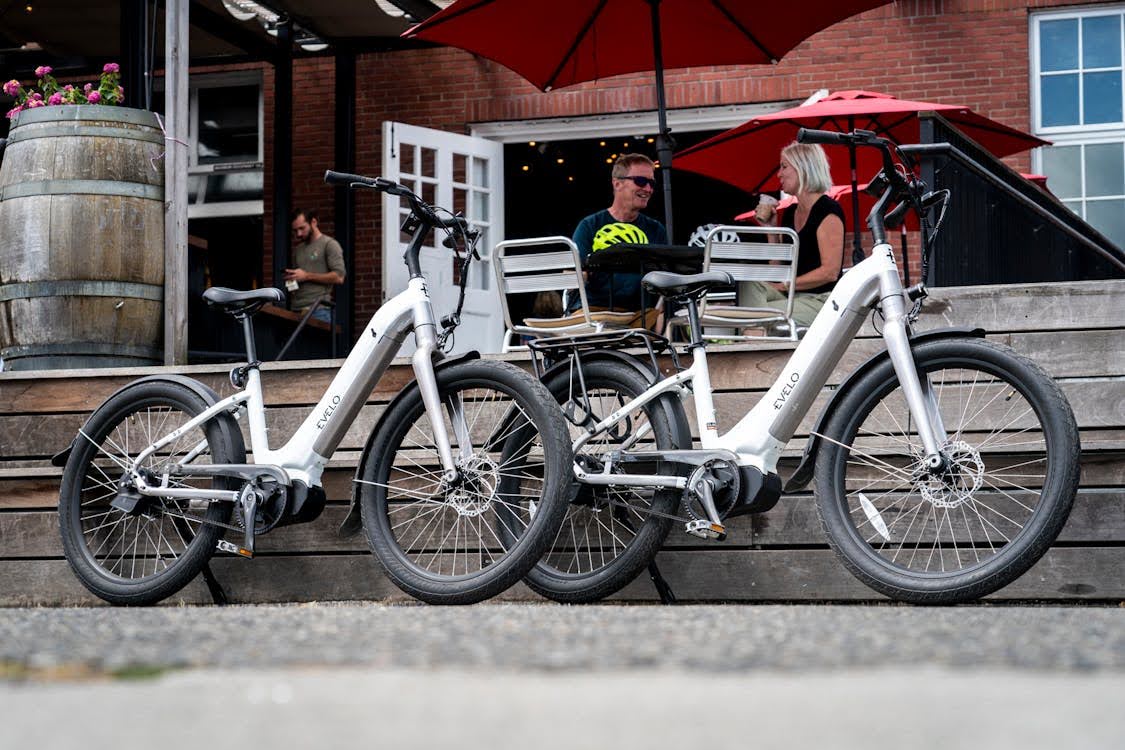The Cycle to Work scheme in Ireland allows you to buy a brand-new bike at a reduced price and get a lucrative tax benefit. That’s why many are interested in making multiple purchases with the scheme. But, does the scheme allow it?
Can you buy 2 bikes on the Cycle to Work scheme? Can you get a second bike for yourself or maybe get one for a family member? In this article, we’ll break down the rules and find out if it is possible to buy 2 bikes on the Cycle to Work scheme.
But first, here’s a quick rundown of what you can buy on the Cycle to Work scheme.
What Can I Buy On the Cycle to Work Scheme?
The Cycle to Work scheme covers more than just bicycles. Users of the scheme can get different types of cycles and all essential cycling equipment they could need for safe and comfortable commutes.
However, there are spending limits based on the type of bike you choose:
-
€1,250 for standard bicycles.
-
€1,500 for electric bikes (e-bikes).
-
€3,000 for cargo bikes and e-cargo bikes.
Stay within these spending limits and you can buy anything from the following list:
-
Standard road, hybrid, and mountain bikes.
-
Folding bikes for easy transport and storage.
-
Electric bikes (e-bikes) with pedal assistance.
-
Cargo bikes for carrying heavy loads or passengers.
-
Helmets (mandatory for safe riding).
-
High-visibility clothing and reflective gear.
-
Front and rear lights for better visibility.
-
Mudguards to protect from splashes.
-
Panniers, saddlebags, and handlebar bags for carrying essentials.
-
Heavy-duty bike locks (U-locks, chain locks, and cable locks).
-
Pumps and puncture repair kits.
-
Multi-tools and Allen key sets.
As you can see from the list above, the Cycle to Work scheme covers all cycling essentials. But, when shopping, there are two more rules to follow:
-
You must buy brand new. No second-hand bikes or accessories are allowed.
-
No motorcycles, mopeds, or scooters. Any vehicle that doesn’t meet the definition of a bicycle and pedelec can not be bought on the Cycle to Work scheme.
Can I Buy 2 Bikes On the Cycle to Work Scheme?
The Cycle to Work scheme in Ireland only supports the purchase of a single bike and any necessary accessories. That means you can not buy 2 bikes on the Cycle to Work scheme. Even if you don’t use the full amount, you can not split it across multiple transactions.
Moreover, the once-every-four-year rule restricts employees from making a second claim. Once you have availed of the scheme, you must wait four years before applying again, regardless of how much you spent.
So, if you want two bikes, your only option is to buy one through the scheme and pay for the second bike yourself. Alternatively, you can wait four years and re-apply for the scheme to get a second bike.
Conclusion
Invest in the right kit and ensure proper maintenance to make sure you get the most out of your purchase.
While some employers may offer slight flexibility, the general rule is that you can not buy 2 bikes on the Cycle to Work scheme. If you need a second bike, you’ll have to pay for it yourself or wait for your next eligibility cycle.
FAQs
-
Can I buy two bikes if they are within the spending limit?
No, the scheme only allows for the purchase of one bike per four-year period, even if the total cost stays within the spending limit.
-
Can I use the scheme twice within four years to get two bikes?
Once you make a purchase through the scheme, you cannot apply again until four years have passed. Even if you didn’t use the full spending limit, you must wait until your next eligibility cycle starts.
-
Can I get one bike now and another later under the same scheme?
The scheme requires that the entire amount must be used in a single transaction. If you don’t spend the full amount, you cannot use the remaining balance later for another bike, accessories, or repairs.
-
Can I buy a bike for my partner or family member under my name?
No, the Cycle to Work scheme can not be used to purchase a bike for anyone other than yourself. The rules specify that the bike must only be used personally by the employee and it should mostly be used for qualifying journeys (commuting to and from work or other work-related journeys) only.

